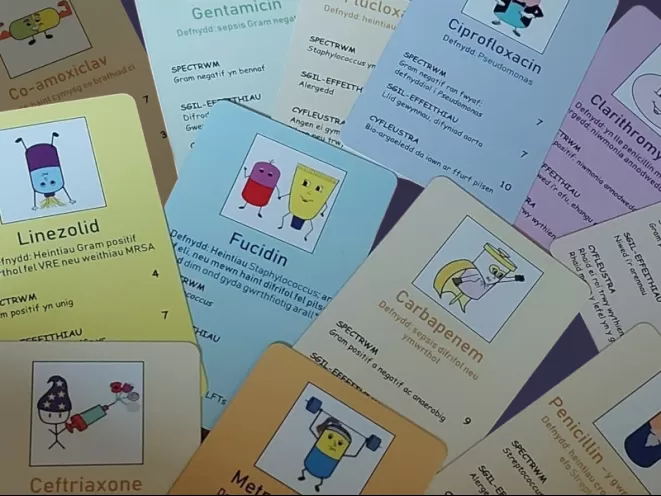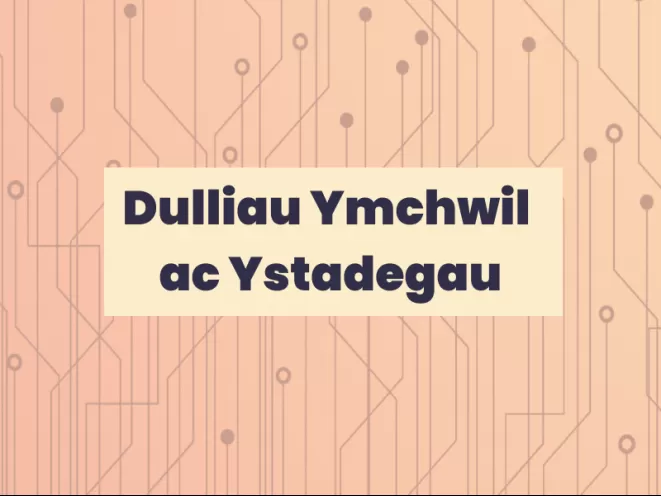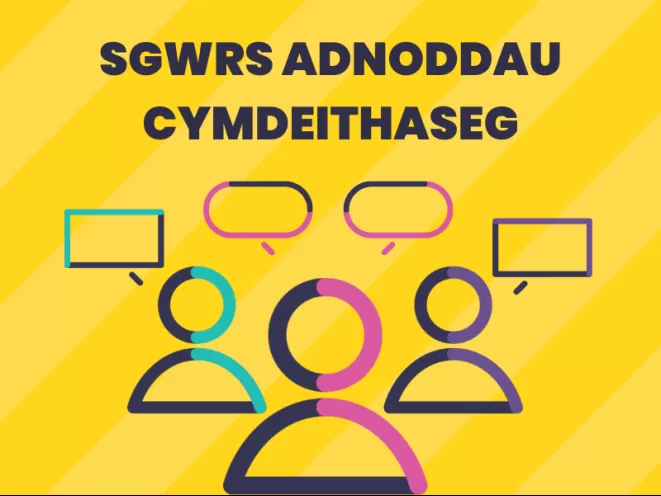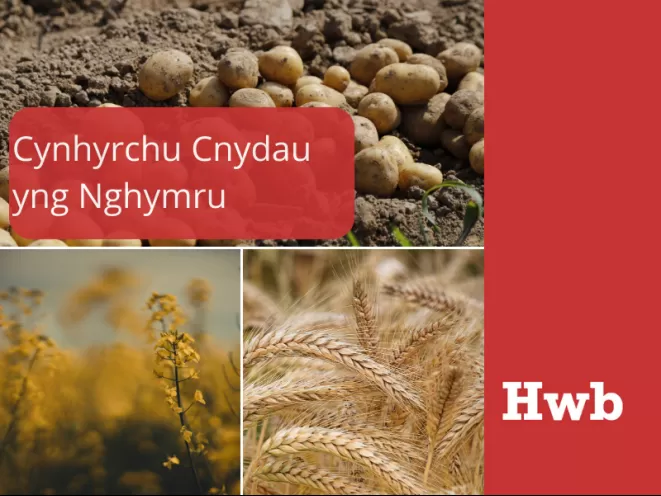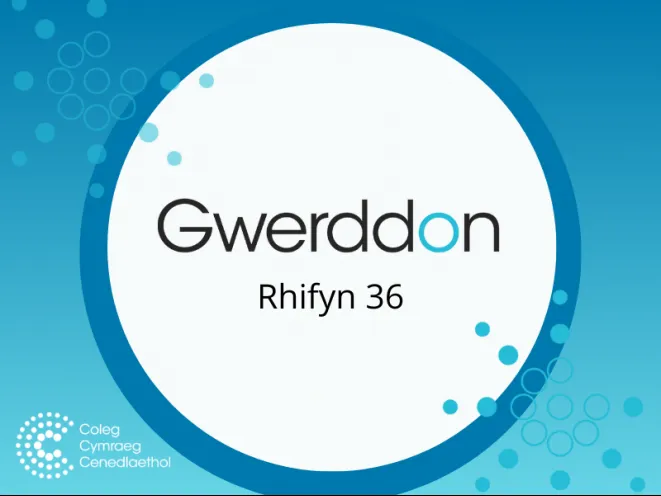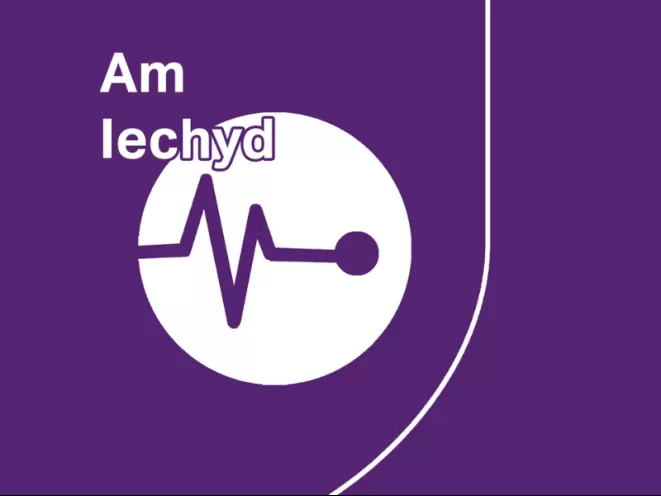Cards for a game in 'trumps' format, containing information on commonly used antibiotics. These cards could be used as a fun learning resource for medical students. They are also suitable for students in other health professions, eg pharmacy.
Antibiotic 'Trumps' cards for medical students
Pūtahitanga Project: Music, Language, and Identity
Pūtahitanga: te reo Māori (in the Māori language) which describes a community coming together to work together on a specific idea, topic or challenge. The word embodies the ethos of the research project that uses it as a title: The Pūtahitanga Project. This is a project that explores popular music, language and identity in the Welsh and Māori contexts. As part of the project, Dr Elen Ifan from Cardiff University received an Innovation Grant from the Coleg Cymraeg Cenedlaethol to hold workshops in Aotearoa (New Zealand) and Wales with musicians who use Māori and Welsh in their work. This resource shares clips from the workshop in Cardiff and includes activities to involve you in our research as well. It is mainly designed for higher education students, but it is also relevant to anyone interested in Welsh popular music and the worksheet is suitable for AS and A level as well. The project essentially aims to find connections between the experiences of musicians who use two minority languages (Welsh and te reo (the language) Māori), trying to understand the various challenges facing these musical communities , but without directly comparing. The project uses creative research methods and involves audiences in the research. This resource forms part of that work. The video files include a presentation by the lead researcher and clips from a workshop held in Cardiff in November 2023. The worksheet guides the person using the resource through the activities, encourages them to engage with the themes of the project, to think about what is relevant or important to them, and invites creative responses to the research.
Weddings and spies: Georges Dufaud’s pioneering travel from Nevers to Merthyr Tydfil at the beginning of the n...
This article discusses the industrial and personal connections between the Crawshay family in Merthyr Tydfil and the Dufaud family in France. It draws on travel diaries, notes and letters by Georges Dufaud and his son Achille Dufaud on their visits to Merthyr, providing insights into the Frenchmen’s impressions of Merthyr and its industrial superiority, and of the practicalities of travel and funding at the time. These texts also suggest the extent of the technological transfer from Wales to France, and reveal Welsh fears of industrial espionage. Following the wedding of Louise Dufaud and George Crawshay, Welsh workers and Welsh machinery (from Neath Abbey) were exported to France. Both played a decisive role in the development of the Fourchambault iron works near Nevers. Author: Heather Williams
Gethin Matthews, ‘Troublesome and tragic’: The Easter Rising, 1916, and the Welsh Press
The Easter Rising in Dublin in 1916 began a chain of events that led to the independence of most of Ireland, but at the time its momentous significance was not appreciated in Wales. For the vast majority of Welsh people, it was pure treachery as it happened at a time when Ireland (like the rest of the United Kingdom) was engaged in a war unprecedented in its savagery and scale. This article traces how events in Ireland were seen in Wales through the lens of the war against Germany, and how the notion that Ireland (like Wales) was better off within the protective embrace of the British Empire was so widespread that it could not be challenged. Author: Gethin Matthews
Vicar Rhys Prichard’s sleep poems
This article surveys the considerations regarding sleep in Welsh literature by analysing the popular poems of Vicar Rhys Prichard (1579–1644). Religious and cultural considerations regarding sleep, as found in the Vicar’s poems, are analysed. The main characteristics of the Vicar’s sleep poems are identified, and we gain an insight into how some people slept, or how the Vicar believed or wished them to sleep. As a result, the article shows the importance of sleep during the period and that people took it seriously. In doing so, it is emphasized that it should be remembered that real people, of flesh and blood, are studied, and although they only exist in texts from our point of view, they should be treated as human beings that, in the context of this article, slept. Author: Dewi Alter
Political Legitimation and the Welsh Public Sphere: a Habermasian Analysis
It is often said that Wales’s devolved political institutions suffer from a ‘democratic deficit’, associated with a ‘media deficit’. This article uses the political philosophy of Jürgen Habermas to interpret these claims. The article begins by discussing the central problem and applying Habermas’s theory of legitimation to it (1), before turning to the theory’s key concept, namely the public sphere (2). Part 3 argues that an informal political public sphere is lacking in Wales today and that this undermines the legitimacy of the devolved political settlement, supporting this argument with data (3). The final part of the article places the Welsh case in a broader context, and opens the discussion regarding possible solutions (4). Author: Dafydd Huw Rees
Research Methods and Statistics
This Welsh-medium e-textbook is a comprehensive introduction to the process of planning and conducting research. Aimed primarily at Psychology undergraduates, it accompanies Welsh-medium research method and dissertation modules. It is also a useful resource for undergraduate and postgraduate students in a wide range of other subjects. The authors of the textbook are Dr Awel Vaughan-Evans, Dr Gwennant Evans-Jones and Emma Hughes-Parry.
Good Practice in Developing Educational Provision and Teaching in a Minoritised Language in Universities: Exam...
The purpose of this booklet is to share good practice in developing educational provision and teaching in a minoritised language in universities. The good practice covered in this booklet come from focus groups held with lecturers and students looking at their experiences of Welsh and Irish medium education at universities in Wales and Ireland. This booklet discusses: good practice in encouraging students to study in a minoritised language developing provision in a minoritised language; teaching in a minoritised language supporting students in a minoritised language assessments in a minoritised language normalising the use of a minoritised language among students. We anticipate that this booklet will be useful not only for lecturers and providers of higher education in these countries, but also for lecturers, higher education providers and providers in other education sectors in other parts of the world who are developing educational provision and teaching in a minoritised language.
An introduction to sociology resources
A 20 minute talk introducing resources created by Sociology lecturers. The resources that are showcased will be useful for teachers, pupils, learners and lecturers to support their teaching and learning. They can all be found on the Porth. These include: 'PAAC' resources which are on the themes of: Introduction to Sociology, Education, The Family, Research Skills, and Social Inequality Study of Contemporary Wales self study module Social Sciences: A Sociological Theory self study module Esboniadur Gwyddorau Cymdeithasol (Sociology Explainer - the Esboniadur is a collection of Welsh medium wicipedia style pages on a range of topics).
Crop production in Wales
This resource looks at crop production in Wales. It is suitable for learners in further and higher education studying programmes from levels 2 to 6. There are eight units each containing information on different aspects of crop production These include aspects of cultivation, establishment, growth, manuring, crop protection, harvesting and storage. The units are as follows: Introduction to crop growing in Wales Crop cultivation Crop establishment Crop growth and establishment Manuring Crop protection Harvesting Crop Storage This resource is on Welsh Government's HWB website and was published by Welsh Government.
‘One of the most glorious failures’ of linguistic purism? An analysis of the contemporary lexical patterns of ...
The aim of this article is to analyse an under-researched aspect of Patagonian Welsh, namely its current lexical patterns. Based on data obtained from 134 questionnaires, it will be shown that the lexical variation that exists in this variety of Welsh is conditioned to a considerable degree by the variety of linguistic backgrounds found today among Chubut Province’s Welsh speakers. The results therefore not only show how historical dialect contact has played a crucial role in the evolution of traditional Patagonian Welsh, but also explore for the first time the extent to which a specific educational programme, namely the British Council’s ‘Welsh Language Project’, is influencing Welsh learners’ use of lexical features in the region. Another objective is to consider some of the results’ wider implications, including the relevance of language ideologies to the historical and contemporary lexical patterns of Patagonian Welsh. Author: Iwan Wyn Rees
About Health (Am Iechyd)
A series of Welsh medium podcasts discussing topics related to health and social care.

